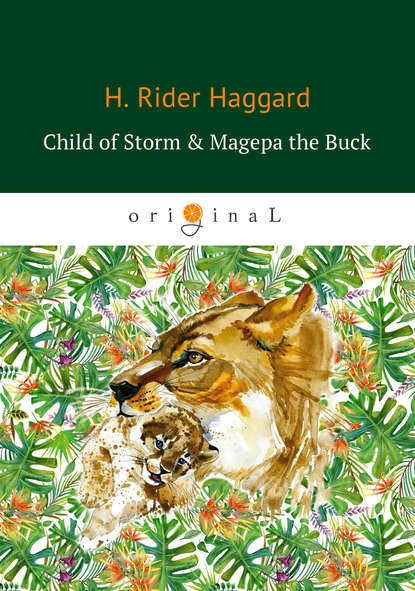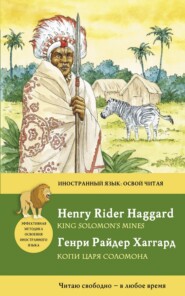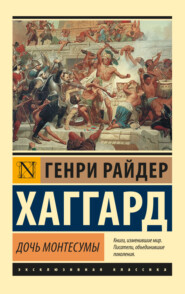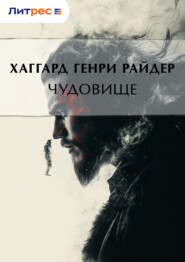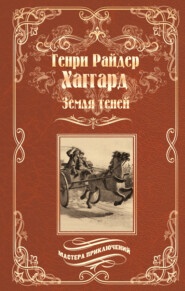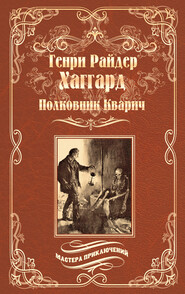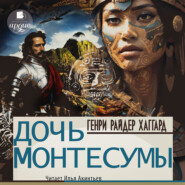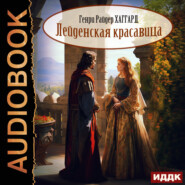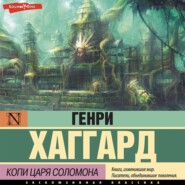По всем вопросам обращайтесь на: info@litportal.ru
(©) 2003-2024.
✖
Child of Storm & Magepa the Buck
Автор
Серия
Год написания книги
2018
Настройки чтения
Размер шрифта
Высота строк
Поля
“Enter, Macumazahn, and look,” and the black pebble he threw into the left-hand fire saying: “Enter, Son of Matiwane, and look. Then come back both of you and make report to me, your master.”
Now it is a fact that as he said these words I experienced a sensation as though a stone had come out of my throat; so readily do our nerves deceive us that I even thought it grated against my teeth as I opened my mouth to give it passage. At any rate the choking was gone, only now I felt as though I were quite empty and floating on air, as though I were not I, in short, but a mere shell of a thing, all of which doubtless was caused by the stench of those burning roots. Still I could look and take note, for I distinctly saw Zikali thrust his huge head, first into the smoke of what I will call my fire, next into that of Saduko’s fire, and then lean back, blowing the stuff in clouds from his mouth and nostrils. Afterwards I saw him roll over on to his side and lie quite still with his arms outstretched; indeed, I noticed that one of his fingers seemed to be in the left-hand fire and reflected that it would be burnt off. In this, however, I must have been mistaken, since I observed subsequently that it was not even scorched.
Thus Zikali lay for a long while till I began to wonder whether he were not really dead. Dead enough he seemed to be, for no corpse could have stayed more stirless. But that night I could not keep my thoughts fixed on Zikali or anything. I merely noted these circumstances in a mechanical way, as might one with whom they had nothing whatsoever to do. They did not interest me at all, for there appeared to be nothing in me to be interested, as I gathered according to Zikali, because I was not there, but in a warmer place than I hope ever to occupy, namely, in the stone in that unpleasant-looking, little right-hand fire.
So matters went as they might in a dream. The sun had sunk completely, not even an after-glow was left. The only light remaining was that from the smouldering fires, which just sufficed to illumine the bulk of Zikali, lying on his side, his squat shape looking like that of a dead hippopotamus calf. What was left of my consciousness grew heartily sick of the whole affair; I was tired of being so empty.
At length the dwarf stirred. He sat up, yawned, sneezed, shook himself, and began to rake among the burning embers of my fire with his naked hand. Presently he found the white stone, which was now red-hot – at any rate it glowed as though it were – and after examining it for a moment finally popped it into his mouth! Then he hunted in the other fire for the black stone, which he treated in a similar fashion. The next thing I remember was that the fires, which had died away almost to nothing, were burning very brightly again, I suppose because someone had put fuel on them, and Zikali was speaking.
“Come here, O Macumazana and O Son of Matiwane,” he said, “and I will repeat to you what your spirits have been telling me.”
We drew near into the light of the fires, which for some reason or other was extremely vivid. Then he spat the white stone from his mouth into his big hand, and I saw that now it was covered with lines and patches like a bird’s egg.
“You cannot read the signs?” he said, holding it towards me; and when I shook my head went on: “Well, I can, as you white men read a book. All your history is written here, Macumazahn; but there is no need to tell you that, since you know it, as I do well enough, having learned it in other days, the days of Dingaan, Macumazahn. All your future, also, a very strange future,” and he scanned the stone with interest. “Yes, yes; a wonderful life, and a noble death far away. But of these matters you have not asked me, and therefore I may not tell them even if I wished, nor would you believe if I did. It is of your hunting trip that you have asked me, and my answer is that if you seek your own comfort you will do well not to go. A pool in a dry river-bed; a buffalo bull with the tip of one horn shattered. Yourself and the bull in the pool. Saduko, yonder, also in the pool, and a little half-bred man with a gun jumping about upon the bank. Then a litter made of boughs and you in it, and the father of Mameena walking lamely at your side. Then a hut and you in it, and the maiden called Mameena sitting at your side.
“Macumazahn, your spirit has written on this stone that you should beware of Mameena, since she is more dangerous than any buffalo. If you are wise you will not go out hunting with Umbezi, although it is true that hunt will not cost you your life. There, away, Stone, and take your writings with you!” and as he spoke he jerked his arm and I heard something whiz past my face.
Next he spat out the black stone and examined it in similar fashion.
“Your expedition will be successful, Son of Matiwane,” he said. “Together with Macumazahn you will win many cattle at the cost of sundry lives. But for the rest – well, you did not ask me of it, did you? Also, I have told you something of that story before to-day. Away, Stone!” and the black pebble followed the white out into the surrounding gloom.
We sat quite still until the dwarf broke the deep silence with one of his great laughs.
“My witchcraft is done,” he said. “A poor tale, was it not? Well, hunt for those stones to-morrow and read the rest of it if you can. Why did you not ask me to tell you everything while I was about it, White Man? It would have interested you more, but now it has all gone from me back into your spirit with the stones. Saduko, get you to sleep. Macumazahn, you who are a Watcher-by-Night, come and sit with me awhile in my hut, and we will talk of other things. All this business of the stones is nothing more than a Kafir trick, is it, Macumazahn? When you meet the buffalo with the split horn in the pool of a dried river, remember it is but a cheating trick, and now come into my hut and drink a kamba [bowl] of beer and let us talk of other things more interesting.”
So he took me into the hut, which was a fine one, very well lighted by a fire in its centre, and gave me Kafir beer to drink, that I swallowed gratefully, for my throat was dry and still felt as though it had been scraped.
“Who are you, Father?” I asked point-blank when I had taken my seat upon a low stool, with my back resting against the wall of the hut, and lit my pipe.
He lifted his big head from the pile of karosses on which he was lying and peered at me across the fire.
“My name is Zikali, which means ‘Weapons,’ White Man. You know as much as that, don’t you?” he answered. “My father ‘went down’ so long ago that his does not matter. I am a dwarf, very ugly, with some learning, as we of the Black House understand it, and very old. Is there anything else you would like to learn?”
“Yes, Zikali; how old?”
“There, there, Macumazahn, as you know, we poor Kafirs cannot count very well. How old? Well, when I was young I came down towards the coast from the Great River, you call it the Zambesi, I think, with Undwandwe, who lived in the north in those days. They have forgotten it now because it is some time ago, and if I could write I would set down the history of that march, for we fought some great battles with the people who used to live in this country. Afterwards I was the friend of the Father of the Zulus, he whom they still call Inkoosi Umkulu – the mighty chief – you may have heard tell of him. I carved that stool on which you sit for him and he left it back to me when he died.”
“Inkoosi Umkulu!” I exclaimed. “Why, they say he lived hundreds of years ago.”
“Do they, Macumazahn? If so, have I not told you that we black people cannot count as well as you do? Really it was only the other day. Anyhow, after his death the Zulus began to maltreat us Undwandwe and the Quabies and the Tetwas with us – you may remember that they called us the Amatefula, making a mock of us. So I quarrelled with the Zulus and especially with Chaka, he whom they named ‘Uhlanya’ [the Mad One]. You see, Macumazahn, it pleased him to laugh at me because I am not as other men are. He gave me a name which means ‘The-thing-which-should-never-have-been-born.’ I will not speak that name, it is secret to me, it may not pass my lips. Yet at times he sought my wisdom, and I paid him back for his names, for I gave him very ill counsel, and he took it, and I brought him to his death, although none ever saw my finger in that business. But when he was dead at the hands of his brothers Dingaan and Umhlangana and of Umbopa, Umbopa who also had a score to settle with him, and his body was cast out of the kraal like that of an evil-doer, why I, who because I was a dwarf was not sent with the men against Sotshangana, went and sat on it at night and laughed thus,” and he broke into one of his hideous peals of merriment.
“I laughed thrice: once for my wives whom he had taken; once for my children whom he had slain; and once for the mocking name that he had given me. Then I became the counsellor of Dingaan, whom I hated worse than I had hated Chaka, for he was Chaka again without his greatness, and you know the end of Dingaan, for you had a share in that war, and of Umhlangana, his brother and fellow-murderer, whom I counselled Dingaan to slay. This I did through the lips of the old Princess Menkabayi, Jama’s daughter, Senzangakona’s sister, the Oracle before whom all men bowed, causing her to say that ‘This land of the Zulus cannot be ruled by a crimson assegai.’ For, Macumazahn, it was Umhlangana who first struck Chaka with the spear. Now Panda reigns, the last of the sons of Senzangakona, my enemy, Panda the Fool, and I hold my hand from Panda because he tried to save the life of a child of mine whom Chaka slew. But Panda has sons who are as Chaka was, and against them I work as I worked against those who went before them.”
“Why?” I asked.
“Why? Oh! if I were to tell you all my story you would understand why, Macumazahn. Well, perhaps I will one day.” (Here I may state that as a matter of fact he did, and a very wonderful tale it is, but as it has nothing to do with this history I will not write it here.)
“I dare say,” I answered. “Chaka and Dingaan and Umhlangana and the others were not nice people. But another question. Why do you tell me all this, O Zikali, seeing that were I but to repeat it to a talking-bird you would be smelt out and a single moon would not die before you do?”
“Oh! I should be smelt out and killed before one moon dies, should I? Then I wonder that this has not happened during all the moons that are gone. Well, I tell the story to you, Macumazahn, who have had so much to do with the tale of the Zulus since the days of Dingaan, because I wish that someone should know it and perhaps write it down when everything is finished. Because, too, I have just been reading your spirit and see that it is still a white spirit, and that you will not whisper it to a ‘talking-bird.’”
Now I leant forward and looked at him.
“What is the end at which you aim, O Zikali?” I asked. “You are not one who beats the air with a stick; on whom do you wish the stick to fall at last?”
“On whom?” he answered in a new voice, a low, hissing voice. “Why, on these proud Zulus, this little family of men who call themselves the ‘People of Heaven,’ and swallow other tribes as the great tree-snake swallows kids and small bucks, and when it is fat with them cries to the world, ‘See how big I am! Everything is inside of me.’ I am a Ndwande, one of those peoples whom it pleases the Zulus to call ‘Amatefula’ – poor hangers-on who talk with an accent, nothing but bush swine. Therefore I would see the swine tusk the hunter. Or, if that may not be, I would see the black hunter laid low by the rhinoceros, the white rhinoceros of your race, Macumazahn, yes, even if it sets its foot upon the Ndwande boar as well. There, I have told you, and this is the reason that I live so long, for I will not die until these things have come to pass, as come to pass they will. What did Chaka, Senzangakona’s son, say when the little red assegai, the assegai with which he slew his mother, aye and others, some of whom were near to me, was in his liver? What did he say to Mbopa and the princes? Did he not say that he heard the feet of a great white people running, of a people who should stamp the Zulus flat? Well, I, ‘The-thing-who-should-not-have-been-born,’ live on until that day comes, and when it comes I think that you and I, Macumazahn, shall not be far apart, and that is why I have opened out my heart to you, I who have knowledge of the future. There, I speak no more of these things that are to be, who perchance have already said too much of them. Yet do not forget my words. Or forget them if you will, for I shall remind you of them, Macumazahn, when the feet of your people have avenged the Ndwandes and others whom it pleases the Zulus to treat as dirt.”
Now, this strange man, who had sat up in his excitement, shook his long white hair which, after the fashion of wizards, be wore plaited into thin ropes, till it hung like a veil about him, hiding his broad face and deep eyes. Presently he spoke again through this veil of hair, saying:
“You are wondering, Macumazahn, what Saduko has to do with all these great events that are to be. I answer that he must play his part in them; not a very great part, but still a part, and it is for this purpose that I saved him as a child from Bangu, Dingaan’s man, and reared him up to be a warrior, although, since I cannot lie, I warned him that he would do well to leave spears alone and follow after wisdom. Well, he will slay Bangu, who now has quarrelled with Panda, and a woman will come into the story, one Mameena, and that woman will bring about war between the sons of Panda, and from this war shall spring the ruin of the Zulus, for he who wins will be an evil king to them and bring down on them the wrath of a mightier race. And so ‘The-thing-that-should-not-have-been-born’ and the Ndwandes and the Quabies and Twetwas, whom it has pleased the conquering Zulus to name ‘Amatefula,’ shall be avenged. Yes, yes, my Spirit tells me all these things, and they are true.”
“And what of Saduko, my friend and your fosterling?”
“Saduko, your friend and my fosterling, will take his appointed road, Macumazahn, as I shall and you will. What more could he desire, seeing it is that which he has chosen? He will take his road and he will play the part which the Great-Great has prepared for him. Seek not to know more. Why should you, since Time will tell you the story? And now go to rest, Macumazahn, as I must who am old and feeble. And when it pleases you to visit me again, we will talk further. Meanwhile, remember always that I am nothing but an old Kafir cheat who pretends to a knowledge that belongs to no man. Remember it especially, Macumazahn, when you meet a buffalo with a split horn in the pool of a dried-up river, and afterwards, when a woman named Mameena makes a certain offer to you, which you may be tempted to accept. Good night to you, Watcher-by-Night with the white heart and the strange destiny, good night to you, and try not to think too hardly of the old Kafir cheat who just now is called ‘Opener-of-Roads.’ My servant waits without to lead you to your hut, and if you wish to be back at Umbezi’s kraal by nightfall to-morrow, you will do well to start ere sunrise, since, as you found in coming, Saduko, although he may be a fool, is a very good walker, and you do not like to be left behind, Macumazahn, do you?”
So I rose to go, but as I went some impulse seemed to take him and he called me back and made me sit down again.
“Macumazahn,” he said, “I would add a word. When you were quite a lad you came into this country with Retief, did you not?”
“Yes,” I answered slowly, for this matter of the massacre of Retief is one of which I have seldom cared to speak, for sundry reasons, although I have made a record of it in writing. Even my friends Sir Henry Curtis and Captain Good have heard little of the part I played in that tragedy. “But what do you know of that business, Zikali?”
“All that there is to know, I think, Macumazahn, seeing that I was at the bottom of it, and that Dingaan killed those Boers on my advice – just as he killed Chaka and Umhlangana.”
“You cold-blooded old murderer – “ I began, but he interrupted me at once.
“Why do you throw evil names at me, Macumazahn, as I threw the stone of your fate at you just now? Why am I a murderer because I brought about the death of some white men that chanced to be your friends, who had come here to cheat us black folk of our country?”
“Was it for this reason that you brought about their deaths, Zikali?” I asked, staring him in the face, for I felt that he was lying to me.
“Not altogether, Macumazahn,” he answered, letting his eyes, those strange eyes that could look at the sun without blinking, fall before my gaze. “Have I not told you that I hate the House of Senzangakona? And when Retief and his companions were killed, did not the spilling of their blood mean war to the end between the Zulus and the White Men? Did it not mean the death of Dingaan and of thousands of his people, which is but a beginning of deaths? Now do you understand?”
“I understand that you are a very wicked man,” I answered with indignation.
“At least you should not say so, Macumazahn,” he replied in a new voice, one with the ring of truth in it.
“Why not?”
“Because I saved your life on that day. You escaped alone of the White Men, did you not? And you never could understand why, could you?”
“No, I could not, Zikali. I put it down to what you would call ‘the spirits.’”
“Well, I will tell you. Those spirits of yours wore my kaross,” and he laughed. “I saw you with the Boers, and saw, too, that you were of another people – the people of the English. You may have heard at the time that I was doctoring at the Great Place, although I kept out of the way and we did not meet, or at least you never knew that we met, for you were – asleep. Also I pitied your youth, for, although you do not believe it, I had a little bit of heart left in those days. Also I knew that we should come together again in the after years, as you see we have done to-day and shall often do until the end. So I told Dingaan that whoever died you must be spared, or he would bring up the ‘people of George’ [i.e. the English] to avenge you, and your ghost would enter into him and pour out a curse upon him. He believed me who did not understand that already so many curses were gathered about his head that one more or less made no matter. So you see you were spared, Macumazahn, and afterwards you helped to pour out a curse upon Dingaan without becoming a ghost, which is the reason why Panda likes you so well to-day, Panda, the enemy of Dingaan, his brother. You remember the woman who helped you? Well, I made her do so. How did it go with you afterwards, Macumazahn, with you and the Boer maiden across the Buffalo River, to whom you were making love in those days?”
“Never mind how it went,” I replied, springing up, for the old wizard’s talk had stirred sad and bitter memories in my heart. “That time is dead, Zikali.”
“Is it, Macumazahn? Now, from the look upon your face I should have said that it was still very much alive, as things that happened in our youth have a way of keeping alive. But doubtless I am mistaken, and it is all as dead as Dingaan, and as Retief, and as the others, your companions. At least, although you do not believe it, I saved your life on that red day, for my own purposes, of course, not because one white life was anything among so many in my count. And now go to rest, Macumazahn, go to rest, for although your heart has been awakened by memories this evening, I promise that you shall sleep well to-night,” and throwing the long hair back off his eyes he looked at me keenly, wagging his big head to and fro, and burst into another of his great laughs.
So I went. But, ah! as I went I wept.
Now it is a fact that as he said these words I experienced a sensation as though a stone had come out of my throat; so readily do our nerves deceive us that I even thought it grated against my teeth as I opened my mouth to give it passage. At any rate the choking was gone, only now I felt as though I were quite empty and floating on air, as though I were not I, in short, but a mere shell of a thing, all of which doubtless was caused by the stench of those burning roots. Still I could look and take note, for I distinctly saw Zikali thrust his huge head, first into the smoke of what I will call my fire, next into that of Saduko’s fire, and then lean back, blowing the stuff in clouds from his mouth and nostrils. Afterwards I saw him roll over on to his side and lie quite still with his arms outstretched; indeed, I noticed that one of his fingers seemed to be in the left-hand fire and reflected that it would be burnt off. In this, however, I must have been mistaken, since I observed subsequently that it was not even scorched.
Thus Zikali lay for a long while till I began to wonder whether he were not really dead. Dead enough he seemed to be, for no corpse could have stayed more stirless. But that night I could not keep my thoughts fixed on Zikali or anything. I merely noted these circumstances in a mechanical way, as might one with whom they had nothing whatsoever to do. They did not interest me at all, for there appeared to be nothing in me to be interested, as I gathered according to Zikali, because I was not there, but in a warmer place than I hope ever to occupy, namely, in the stone in that unpleasant-looking, little right-hand fire.
So matters went as they might in a dream. The sun had sunk completely, not even an after-glow was left. The only light remaining was that from the smouldering fires, which just sufficed to illumine the bulk of Zikali, lying on his side, his squat shape looking like that of a dead hippopotamus calf. What was left of my consciousness grew heartily sick of the whole affair; I was tired of being so empty.
At length the dwarf stirred. He sat up, yawned, sneezed, shook himself, and began to rake among the burning embers of my fire with his naked hand. Presently he found the white stone, which was now red-hot – at any rate it glowed as though it were – and after examining it for a moment finally popped it into his mouth! Then he hunted in the other fire for the black stone, which he treated in a similar fashion. The next thing I remember was that the fires, which had died away almost to nothing, were burning very brightly again, I suppose because someone had put fuel on them, and Zikali was speaking.
“Come here, O Macumazana and O Son of Matiwane,” he said, “and I will repeat to you what your spirits have been telling me.”
We drew near into the light of the fires, which for some reason or other was extremely vivid. Then he spat the white stone from his mouth into his big hand, and I saw that now it was covered with lines and patches like a bird’s egg.
“You cannot read the signs?” he said, holding it towards me; and when I shook my head went on: “Well, I can, as you white men read a book. All your history is written here, Macumazahn; but there is no need to tell you that, since you know it, as I do well enough, having learned it in other days, the days of Dingaan, Macumazahn. All your future, also, a very strange future,” and he scanned the stone with interest. “Yes, yes; a wonderful life, and a noble death far away. But of these matters you have not asked me, and therefore I may not tell them even if I wished, nor would you believe if I did. It is of your hunting trip that you have asked me, and my answer is that if you seek your own comfort you will do well not to go. A pool in a dry river-bed; a buffalo bull with the tip of one horn shattered. Yourself and the bull in the pool. Saduko, yonder, also in the pool, and a little half-bred man with a gun jumping about upon the bank. Then a litter made of boughs and you in it, and the father of Mameena walking lamely at your side. Then a hut and you in it, and the maiden called Mameena sitting at your side.
“Macumazahn, your spirit has written on this stone that you should beware of Mameena, since she is more dangerous than any buffalo. If you are wise you will not go out hunting with Umbezi, although it is true that hunt will not cost you your life. There, away, Stone, and take your writings with you!” and as he spoke he jerked his arm and I heard something whiz past my face.
Next he spat out the black stone and examined it in similar fashion.
“Your expedition will be successful, Son of Matiwane,” he said. “Together with Macumazahn you will win many cattle at the cost of sundry lives. But for the rest – well, you did not ask me of it, did you? Also, I have told you something of that story before to-day. Away, Stone!” and the black pebble followed the white out into the surrounding gloom.
We sat quite still until the dwarf broke the deep silence with one of his great laughs.
“My witchcraft is done,” he said. “A poor tale, was it not? Well, hunt for those stones to-morrow and read the rest of it if you can. Why did you not ask me to tell you everything while I was about it, White Man? It would have interested you more, but now it has all gone from me back into your spirit with the stones. Saduko, get you to sleep. Macumazahn, you who are a Watcher-by-Night, come and sit with me awhile in my hut, and we will talk of other things. All this business of the stones is nothing more than a Kafir trick, is it, Macumazahn? When you meet the buffalo with the split horn in the pool of a dried river, remember it is but a cheating trick, and now come into my hut and drink a kamba [bowl] of beer and let us talk of other things more interesting.”
So he took me into the hut, which was a fine one, very well lighted by a fire in its centre, and gave me Kafir beer to drink, that I swallowed gratefully, for my throat was dry and still felt as though it had been scraped.
“Who are you, Father?” I asked point-blank when I had taken my seat upon a low stool, with my back resting against the wall of the hut, and lit my pipe.
He lifted his big head from the pile of karosses on which he was lying and peered at me across the fire.
“My name is Zikali, which means ‘Weapons,’ White Man. You know as much as that, don’t you?” he answered. “My father ‘went down’ so long ago that his does not matter. I am a dwarf, very ugly, with some learning, as we of the Black House understand it, and very old. Is there anything else you would like to learn?”
“Yes, Zikali; how old?”
“There, there, Macumazahn, as you know, we poor Kafirs cannot count very well. How old? Well, when I was young I came down towards the coast from the Great River, you call it the Zambesi, I think, with Undwandwe, who lived in the north in those days. They have forgotten it now because it is some time ago, and if I could write I would set down the history of that march, for we fought some great battles with the people who used to live in this country. Afterwards I was the friend of the Father of the Zulus, he whom they still call Inkoosi Umkulu – the mighty chief – you may have heard tell of him. I carved that stool on which you sit for him and he left it back to me when he died.”
“Inkoosi Umkulu!” I exclaimed. “Why, they say he lived hundreds of years ago.”
“Do they, Macumazahn? If so, have I not told you that we black people cannot count as well as you do? Really it was only the other day. Anyhow, after his death the Zulus began to maltreat us Undwandwe and the Quabies and the Tetwas with us – you may remember that they called us the Amatefula, making a mock of us. So I quarrelled with the Zulus and especially with Chaka, he whom they named ‘Uhlanya’ [the Mad One]. You see, Macumazahn, it pleased him to laugh at me because I am not as other men are. He gave me a name which means ‘The-thing-which-should-never-have-been-born.’ I will not speak that name, it is secret to me, it may not pass my lips. Yet at times he sought my wisdom, and I paid him back for his names, for I gave him very ill counsel, and he took it, and I brought him to his death, although none ever saw my finger in that business. But when he was dead at the hands of his brothers Dingaan and Umhlangana and of Umbopa, Umbopa who also had a score to settle with him, and his body was cast out of the kraal like that of an evil-doer, why I, who because I was a dwarf was not sent with the men against Sotshangana, went and sat on it at night and laughed thus,” and he broke into one of his hideous peals of merriment.
“I laughed thrice: once for my wives whom he had taken; once for my children whom he had slain; and once for the mocking name that he had given me. Then I became the counsellor of Dingaan, whom I hated worse than I had hated Chaka, for he was Chaka again without his greatness, and you know the end of Dingaan, for you had a share in that war, and of Umhlangana, his brother and fellow-murderer, whom I counselled Dingaan to slay. This I did through the lips of the old Princess Menkabayi, Jama’s daughter, Senzangakona’s sister, the Oracle before whom all men bowed, causing her to say that ‘This land of the Zulus cannot be ruled by a crimson assegai.’ For, Macumazahn, it was Umhlangana who first struck Chaka with the spear. Now Panda reigns, the last of the sons of Senzangakona, my enemy, Panda the Fool, and I hold my hand from Panda because he tried to save the life of a child of mine whom Chaka slew. But Panda has sons who are as Chaka was, and against them I work as I worked against those who went before them.”
“Why?” I asked.
“Why? Oh! if I were to tell you all my story you would understand why, Macumazahn. Well, perhaps I will one day.” (Here I may state that as a matter of fact he did, and a very wonderful tale it is, but as it has nothing to do with this history I will not write it here.)
“I dare say,” I answered. “Chaka and Dingaan and Umhlangana and the others were not nice people. But another question. Why do you tell me all this, O Zikali, seeing that were I but to repeat it to a talking-bird you would be smelt out and a single moon would not die before you do?”
“Oh! I should be smelt out and killed before one moon dies, should I? Then I wonder that this has not happened during all the moons that are gone. Well, I tell the story to you, Macumazahn, who have had so much to do with the tale of the Zulus since the days of Dingaan, because I wish that someone should know it and perhaps write it down when everything is finished. Because, too, I have just been reading your spirit and see that it is still a white spirit, and that you will not whisper it to a ‘talking-bird.’”
Now I leant forward and looked at him.
“What is the end at which you aim, O Zikali?” I asked. “You are not one who beats the air with a stick; on whom do you wish the stick to fall at last?”
“On whom?” he answered in a new voice, a low, hissing voice. “Why, on these proud Zulus, this little family of men who call themselves the ‘People of Heaven,’ and swallow other tribes as the great tree-snake swallows kids and small bucks, and when it is fat with them cries to the world, ‘See how big I am! Everything is inside of me.’ I am a Ndwande, one of those peoples whom it pleases the Zulus to call ‘Amatefula’ – poor hangers-on who talk with an accent, nothing but bush swine. Therefore I would see the swine tusk the hunter. Or, if that may not be, I would see the black hunter laid low by the rhinoceros, the white rhinoceros of your race, Macumazahn, yes, even if it sets its foot upon the Ndwande boar as well. There, I have told you, and this is the reason that I live so long, for I will not die until these things have come to pass, as come to pass they will. What did Chaka, Senzangakona’s son, say when the little red assegai, the assegai with which he slew his mother, aye and others, some of whom were near to me, was in his liver? What did he say to Mbopa and the princes? Did he not say that he heard the feet of a great white people running, of a people who should stamp the Zulus flat? Well, I, ‘The-thing-who-should-not-have-been-born,’ live on until that day comes, and when it comes I think that you and I, Macumazahn, shall not be far apart, and that is why I have opened out my heart to you, I who have knowledge of the future. There, I speak no more of these things that are to be, who perchance have already said too much of them. Yet do not forget my words. Or forget them if you will, for I shall remind you of them, Macumazahn, when the feet of your people have avenged the Ndwandes and others whom it pleases the Zulus to treat as dirt.”
Now, this strange man, who had sat up in his excitement, shook his long white hair which, after the fashion of wizards, be wore plaited into thin ropes, till it hung like a veil about him, hiding his broad face and deep eyes. Presently he spoke again through this veil of hair, saying:
“You are wondering, Macumazahn, what Saduko has to do with all these great events that are to be. I answer that he must play his part in them; not a very great part, but still a part, and it is for this purpose that I saved him as a child from Bangu, Dingaan’s man, and reared him up to be a warrior, although, since I cannot lie, I warned him that he would do well to leave spears alone and follow after wisdom. Well, he will slay Bangu, who now has quarrelled with Panda, and a woman will come into the story, one Mameena, and that woman will bring about war between the sons of Panda, and from this war shall spring the ruin of the Zulus, for he who wins will be an evil king to them and bring down on them the wrath of a mightier race. And so ‘The-thing-that-should-not-have-been-born’ and the Ndwandes and the Quabies and Twetwas, whom it has pleased the conquering Zulus to name ‘Amatefula,’ shall be avenged. Yes, yes, my Spirit tells me all these things, and they are true.”
“And what of Saduko, my friend and your fosterling?”
“Saduko, your friend and my fosterling, will take his appointed road, Macumazahn, as I shall and you will. What more could he desire, seeing it is that which he has chosen? He will take his road and he will play the part which the Great-Great has prepared for him. Seek not to know more. Why should you, since Time will tell you the story? And now go to rest, Macumazahn, as I must who am old and feeble. And when it pleases you to visit me again, we will talk further. Meanwhile, remember always that I am nothing but an old Kafir cheat who pretends to a knowledge that belongs to no man. Remember it especially, Macumazahn, when you meet a buffalo with a split horn in the pool of a dried-up river, and afterwards, when a woman named Mameena makes a certain offer to you, which you may be tempted to accept. Good night to you, Watcher-by-Night with the white heart and the strange destiny, good night to you, and try not to think too hardly of the old Kafir cheat who just now is called ‘Opener-of-Roads.’ My servant waits without to lead you to your hut, and if you wish to be back at Umbezi’s kraal by nightfall to-morrow, you will do well to start ere sunrise, since, as you found in coming, Saduko, although he may be a fool, is a very good walker, and you do not like to be left behind, Macumazahn, do you?”
So I rose to go, but as I went some impulse seemed to take him and he called me back and made me sit down again.
“Macumazahn,” he said, “I would add a word. When you were quite a lad you came into this country with Retief, did you not?”
“Yes,” I answered slowly, for this matter of the massacre of Retief is one of which I have seldom cared to speak, for sundry reasons, although I have made a record of it in writing. Even my friends Sir Henry Curtis and Captain Good have heard little of the part I played in that tragedy. “But what do you know of that business, Zikali?”
“All that there is to know, I think, Macumazahn, seeing that I was at the bottom of it, and that Dingaan killed those Boers on my advice – just as he killed Chaka and Umhlangana.”
“You cold-blooded old murderer – “ I began, but he interrupted me at once.
“Why do you throw evil names at me, Macumazahn, as I threw the stone of your fate at you just now? Why am I a murderer because I brought about the death of some white men that chanced to be your friends, who had come here to cheat us black folk of our country?”
“Was it for this reason that you brought about their deaths, Zikali?” I asked, staring him in the face, for I felt that he was lying to me.
“Not altogether, Macumazahn,” he answered, letting his eyes, those strange eyes that could look at the sun without blinking, fall before my gaze. “Have I not told you that I hate the House of Senzangakona? And when Retief and his companions were killed, did not the spilling of their blood mean war to the end between the Zulus and the White Men? Did it not mean the death of Dingaan and of thousands of his people, which is but a beginning of deaths? Now do you understand?”
“I understand that you are a very wicked man,” I answered with indignation.
“At least you should not say so, Macumazahn,” he replied in a new voice, one with the ring of truth in it.
“Why not?”
“Because I saved your life on that day. You escaped alone of the White Men, did you not? And you never could understand why, could you?”
“No, I could not, Zikali. I put it down to what you would call ‘the spirits.’”
“Well, I will tell you. Those spirits of yours wore my kaross,” and he laughed. “I saw you with the Boers, and saw, too, that you were of another people – the people of the English. You may have heard at the time that I was doctoring at the Great Place, although I kept out of the way and we did not meet, or at least you never knew that we met, for you were – asleep. Also I pitied your youth, for, although you do not believe it, I had a little bit of heart left in those days. Also I knew that we should come together again in the after years, as you see we have done to-day and shall often do until the end. So I told Dingaan that whoever died you must be spared, or he would bring up the ‘people of George’ [i.e. the English] to avenge you, and your ghost would enter into him and pour out a curse upon him. He believed me who did not understand that already so many curses were gathered about his head that one more or less made no matter. So you see you were spared, Macumazahn, and afterwards you helped to pour out a curse upon Dingaan without becoming a ghost, which is the reason why Panda likes you so well to-day, Panda, the enemy of Dingaan, his brother. You remember the woman who helped you? Well, I made her do so. How did it go with you afterwards, Macumazahn, with you and the Boer maiden across the Buffalo River, to whom you were making love in those days?”
“Never mind how it went,” I replied, springing up, for the old wizard’s talk had stirred sad and bitter memories in my heart. “That time is dead, Zikali.”
“Is it, Macumazahn? Now, from the look upon your face I should have said that it was still very much alive, as things that happened in our youth have a way of keeping alive. But doubtless I am mistaken, and it is all as dead as Dingaan, and as Retief, and as the others, your companions. At least, although you do not believe it, I saved your life on that red day, for my own purposes, of course, not because one white life was anything among so many in my count. And now go to rest, Macumazahn, go to rest, for although your heart has been awakened by memories this evening, I promise that you shall sleep well to-night,” and throwing the long hair back off his eyes he looked at me keenly, wagging his big head to and fro, and burst into another of his great laughs.
So I went. But, ah! as I went I wept.





